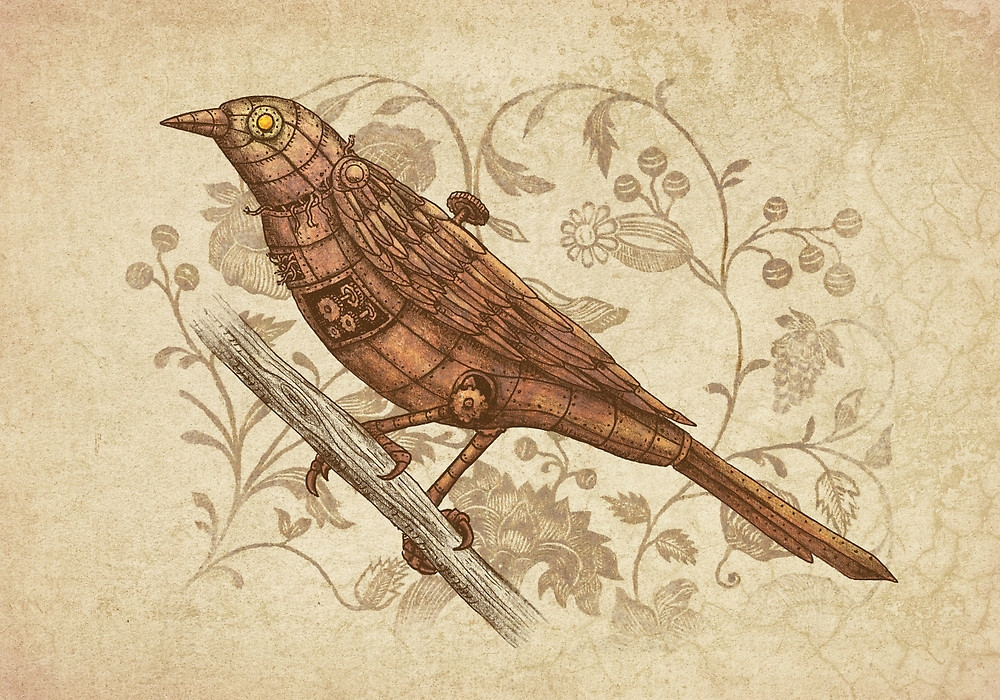A short story that emphasis the notion that while one might find ways to break free from a life of crime and addiction, the lure of its indulgences often linger…

by: T.R. Healy
Eric Fassel, a doorman at the Gloucester Hotel, pulled up the left sleeve of his Cossack-length overcoat and looked at his wrist watch which read a quarter to eleven. He sighed, releasing his sleeve. It was forty-five minutes until it was time for guests to check out of their rooms which surprised him because he thought it would be closer to twenty. The last time he looked at his watch it was an hour until checkout time and he was certain more time had elapsed than fifteen minutes. Suddenly he wondered if his watch was running slow and looked across the street at the illuminated clock above the front door of the investment office on the corner and saw they were in sync. Again, he sighed. Time passed slowly between the morning rush and checkout time because scarcely anyone entered or left the hotel so he had very little to do but watch the parade of people who walked by the hotel which was on the edge of the financial district. Mainly all he saw were bankers and lawyers and, in the afternoon, tourists who frequently asked for directions to places of interest in the city.
“Excuse me, doorman,” a slight woman in her early forties called out as she approached the main entrance of the hotel. “Could you do a favor for me?”
“What’s that, ma’am?”
“I’m starting to lose my grip on some of the packages I’m carrying,” she said, bracing herself against a lamppost. “Could you take a couple of them to my car?”
“I’m really not supposed to leave my post.”
“I’m parked just around the corner.”
Eric knew he shouldn’t oblige her but out of boredom and kindness he took three of the packages out of her hands and followed her around the corner to her car which was parked nearly two blocks away.
“You’re a dear,” she purred as he helped her put the packages in the trunk of her Volvo. “Please, let me give you something for your trouble.”
“No, that’s not necessary.”
“Are you sure?”
He nodded, grateful to be doing something other than waiting to open a door for perfect strangers, and slowly walked back to his station.
To be sure, a doorman was not really very demanding work and, as it turned out, he proved to be quite adept at it. Ever since he could remember he had a knack for putting others at ease. All through high school he was good at pretending to be cordial, even to people he detested. He was a natural at seeming to be someone he wasn’t, according to his mother, which she didn’t mean as a compliment at all.
“Welcome to the Gloucester,” Eric said with a fabricated smile.
It was only a few minutes past checkout time and already people were filing into the hotel. The door barely had the opportunity to be closed when he had to open it again and each time he did he winced in pain because the solid oak door was so heavy. His left shoulder, which was fractured in a car accident a year and a half ago, still troubled him but he tried not to reveal how much it hurt. Of course, he knew being a doorman was not the smartest job to have for someone with a sore shoulder but it was all he could find after he completed the recovery program at the Autumn House and he could not afford to lose it.
Following surgery to repair his damaged shoulder, Eric worked with a physical therapist twice a week for almost a month who had him perform a series of rigorous exercises to strengthen his shoulder. The therapy, however, caused his shoulder to hurt more than it did before the surgery and the analgesics he was prescribed were just not strong enough to alleviate the pain. He pleaded with the surgeon to prescribe something stronger but he was adamant that wasn’t necessary because in time the pain would subside. That didn’t happen, however, and the pain became even more intense so he was soon compelled to visit some of the darker corners of the city to purchase more effective painkillers. They worked but only for a short time and soon he was gobbling them like after dinner mints.
It took Eric less than three months to go through what little savings he had in the bank. When he mentioned that to the street dealer who sold him the painkillers, the guy just shrugged and reminded him he was in the make-money business not the charity business.
“You get when you’ve got,” Isaac said when Eric asked for credit. “Otherwise I’m through doing business with you.”
Eric had to have something to relieve the pain in his shoulder so he pawned his watch and a pair of gold cufflinks his grandfather gave him when he graduated from high school four years prior but that only gave him enough money for another week of pills. Then, out of desperation, he began to take what didn’t belong to him. It seemed as if he had become another person, someone completely alien to the one he knew. He was the sort of person who never got in trouble at school, who was regarded by his teachers as something of a role model for other students. He couldn’t believe he had become a thief but he had to have the painkillers otherwise he didn’t know how he could make through the day.
Eric was not a muscular person, he barely weighed over a hundred pounds, but was quick on his feet so he figured his best chance of getting money quickly was to steal purses. His first attempt was almost his last, however. He followed an older woman out of an expensive shoe boutique and, just before she opened her car door, he grabbed her purse but because the strap was across her chest all he managed to do was pull her into his chest and she started screaming and scratched his face. Immediately he let go of the strap and ran away, sure he wouldn’t try to do anything like that ever again.
But he did try the next day because he needed money fast and this time was successful because the strap of the purse he stole hung along the woman’s side not across her chest. Eric snatched a couple more that day and, gaining some confidence, was ready to steal even more the following day. By the end of the week had enough money to purchase enough pills to last a couple of weeks. Twice, he was chased by people who saw what he did but he was just too fast for them to catch which only increased his confidence.
Just like lightning, he thought. I strike and then I disappear.
That first week of his new life as a purse thief Eric carefully examined every purse he took, figuring it was not worth the risk to take anything flimsy or cheap. He also only targeted older women who were less likely to put up a struggle. But as his confidence soared he stopped doing any planning and just took whatever he wanted whenever he wanted. With all the money he had accumulated he was able to ingest more pills than ever and felt as strong as he had in a long time. He became so sure of himself he was confident he would never be caught. He believed he could swipe five, six, seven purses a day if he wished.
He was, however, mistaken.
Toward the end of his third week of larceny, Eric was chased down by a cop on a mountain bike and arrested and clamped in cuffs. He couldn’t believe it thinking he was too clever and quick ever to be nabbed by anyone.
“You’re going to be behind bars for a long time, son,” the cop informed him as they waited for a squad car to arrive to take him to the jailhouse downtown. “I hope you realize that.”
He bowed his head, still stunned he was in custody.
“What were you thinking?”
“I guess I wasn’t.”
“That’s for damn sure.”
Futilely he wiggled his wrists.
“Nickelwise,” the cop bellowed. “That’s about how smart punks like you are. ou do the darndest things without thinking about the possible consequences.”
Eric held open the door for two airline attendants, and as he did he noticed a smudge on one of the white gloves he was required to wear. Quickly, after the attendants entered the hotel, he tried to rub it out before Miss Atwater, the concierge, saw it and subjected him to another scolding. She was a very stern person who didn’t tolerate blemishes of any kind on his uniform.
“You have to look the part to be the part in anything you do in life,” she often told him. “Gavin recognized that and so should you, Eric.”
Gavin was the previous doorman who worked at the hotel a little over seven years until he was struck by a drunken driver one night crossing the street in front of the hotel and died on his way to the hospital.
“I still can’t believe it,” she admitted, after telling him what happened to his predecessor. “Gavin crossed that street hundreds of times. Maybe thousands. It just doesn’t make any sense.”
“I suppose not.”
“But I guess that’s because there’s no sense to be made of this world.”
“Where do I sign up to get a bad-ass hat like that?” a bearded guy in his twenties asked as he approached the door.
Eric, used to such remarks, grinned.
“You look like a general in some South American banana republic.”
Without question, the peaked service cap was the most ridiculous part of his uniform. The crown was so high above the polished leather visor that it looked as if it had been swept back in a severe windstorm. He could not help but smile whenever he saw his reflection in a window because it appeared as if he had flipped his lid.
Later that afternoon, as he held open the door for a bus load of visitors from Toronto, he saw a disheveled man suddenly toss a lawn chair into the street. Cars swerved around it, their horns blaring, and then the man tore some flowers out of a pot in front of an optometrist’s office and hurled them into the street. Eric had little doubt the man was high on something and suspected he might have been doing something just as crazy if he hadn’t received treatment for his addiction to painkillers.
Fortunately, because it was the first time Eric had ever been arrested, he was given the option to enter a drug rehabilitation program instead of going to prison for several years. It was the easiest decision he ever had to make, and when he left after three grueling months he was determined never to return even though he knew many others did.
Aaron, one of the counselors on the staff at the Autumn House, admitted he had relapsed three times before he finally made up his mind to stay sober once and for all which he had for almost four years.
“It’s hard, I know,” he admitted at one of the early group meetings at the House, “but if I can do it you can too. You just have to want to do it more than anything else because getting through this program isn’t enough. Every day is a challenge. Each and every damn day, and you have to be prepared to meet the challenge otherwise you’ll be right back here, gentlemen. I can all but guarantee it.”
Not him, though. Eric was certain he would never suffer a relapse.
“Tell me something, doorman,” a middle-aged woman asked as she prepared to leave the hotel.
“What’s that, ma’am?”
“Don’t you ever get tired of smiling at people you don’t know?”
“I’m not smiling at you.”
“You were, though.”
Eric nodded, staring at the Birkin bag slung over her right shoulder.
“I know that’s something I couldn’t do. Not for very long, anyway.”
He probably couldn’t keep doing it for much longer, either, he thought, as he held open the door for the blunt woman. Then, surprising himself, he suddenly imagined yanking the purse off her shoulder and running away with what his high school track coach called his “finger-snap speed.”





